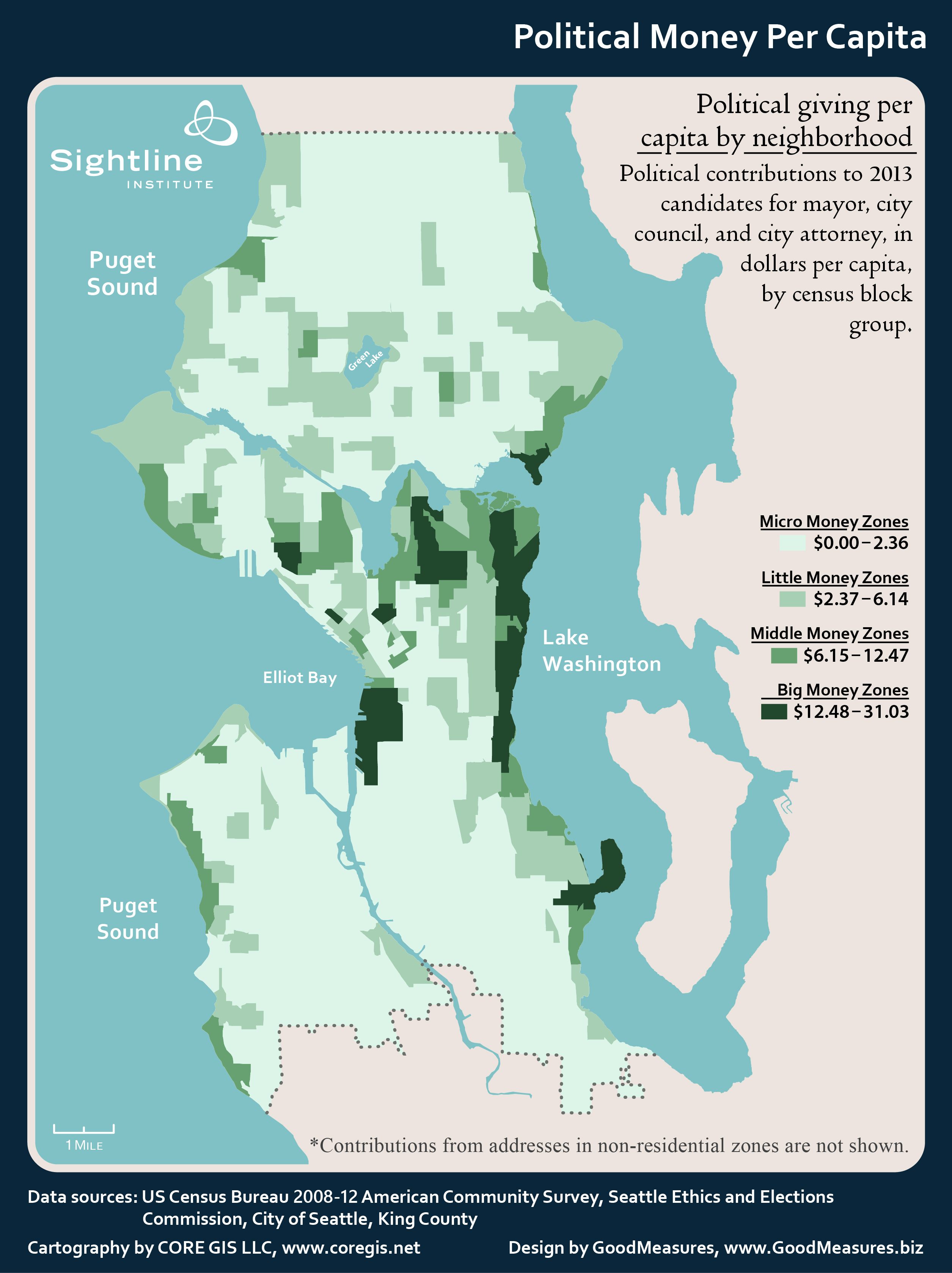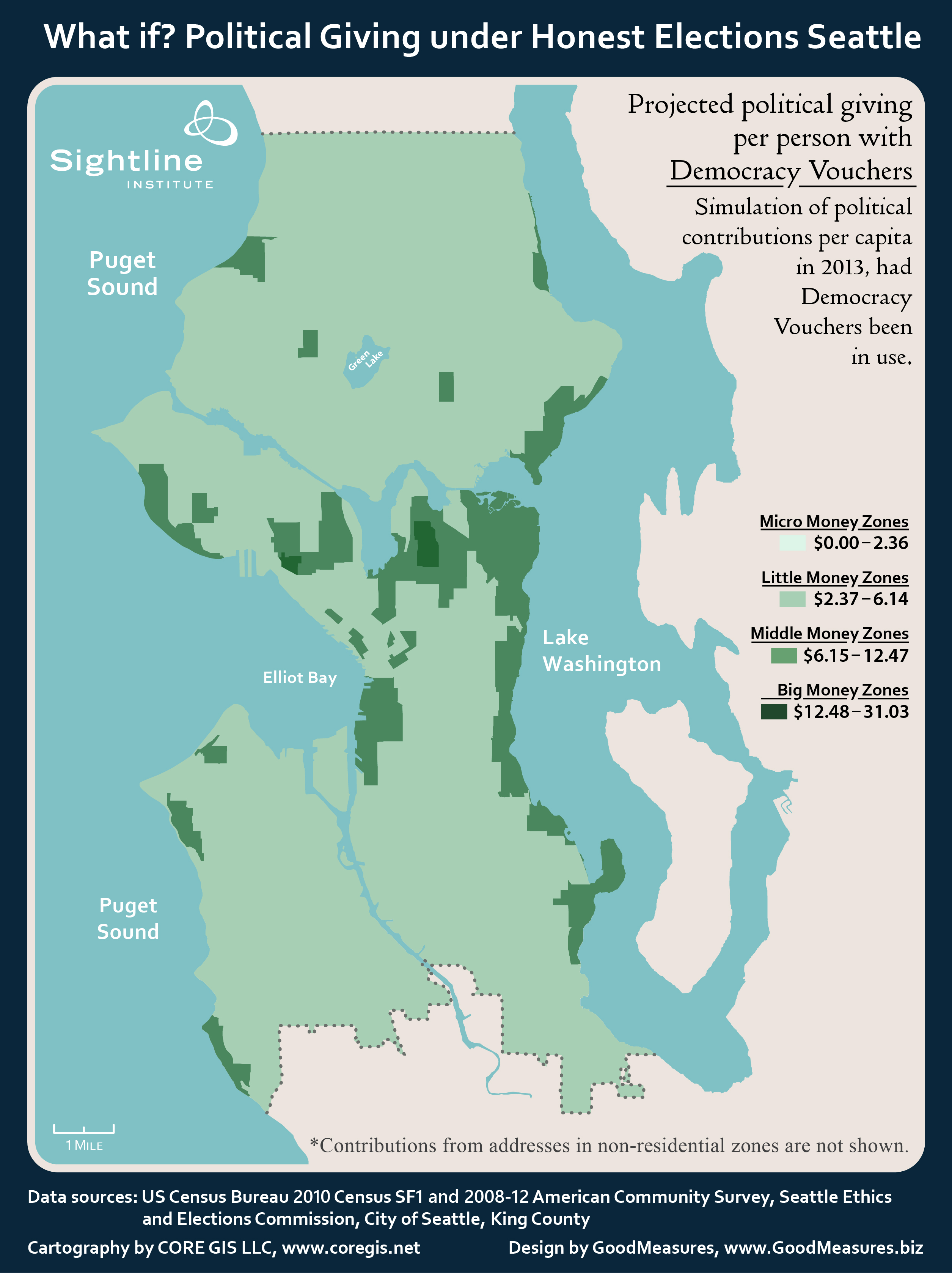

Overwhelmingly, rich, white people who live in Seattle’s waterfront and view homes fund Seattle’s political candidates. That’s the picture that emerges from a new Sightline Institute study released today. If enacted by voters in November, Honest Elections Seattle (Initiative 122) could spread the funding of campaigns from elite neighborhoods to the whole city.
The report analyzes the pattern of political contributions in the 2013 city elections to explore how Honest Elections Seattle might affect giving. The city’s most-giving neighborhoods (dubbed “Big Money Zones”) hold just 4 percent of the population, but they gave as much political money as the least-giving neighborhoods that house 64 percent of the city. Per person, the Big Money Zones gave more than 18 times as much as the least-giving ones.
Furthermore, the Big Money Zones are the city’s most privileged. Compared with the least-giving zones, they are 31 percent whiter and 85 percent richer. Homes in the Big Money Zones are two-and-a-half times pricier and four-and-a-half times more likely to have a mountain or water view.
The Honest Elections Seattle Initiative (I-122) would, among other things, distribute $100 of Democracy Vouchers to each registered voter in the city. Voters would be able to donate their vouchers to candidates who agree to limit their spending and forgo large contributions.
The full report is here.


Comments are closed.